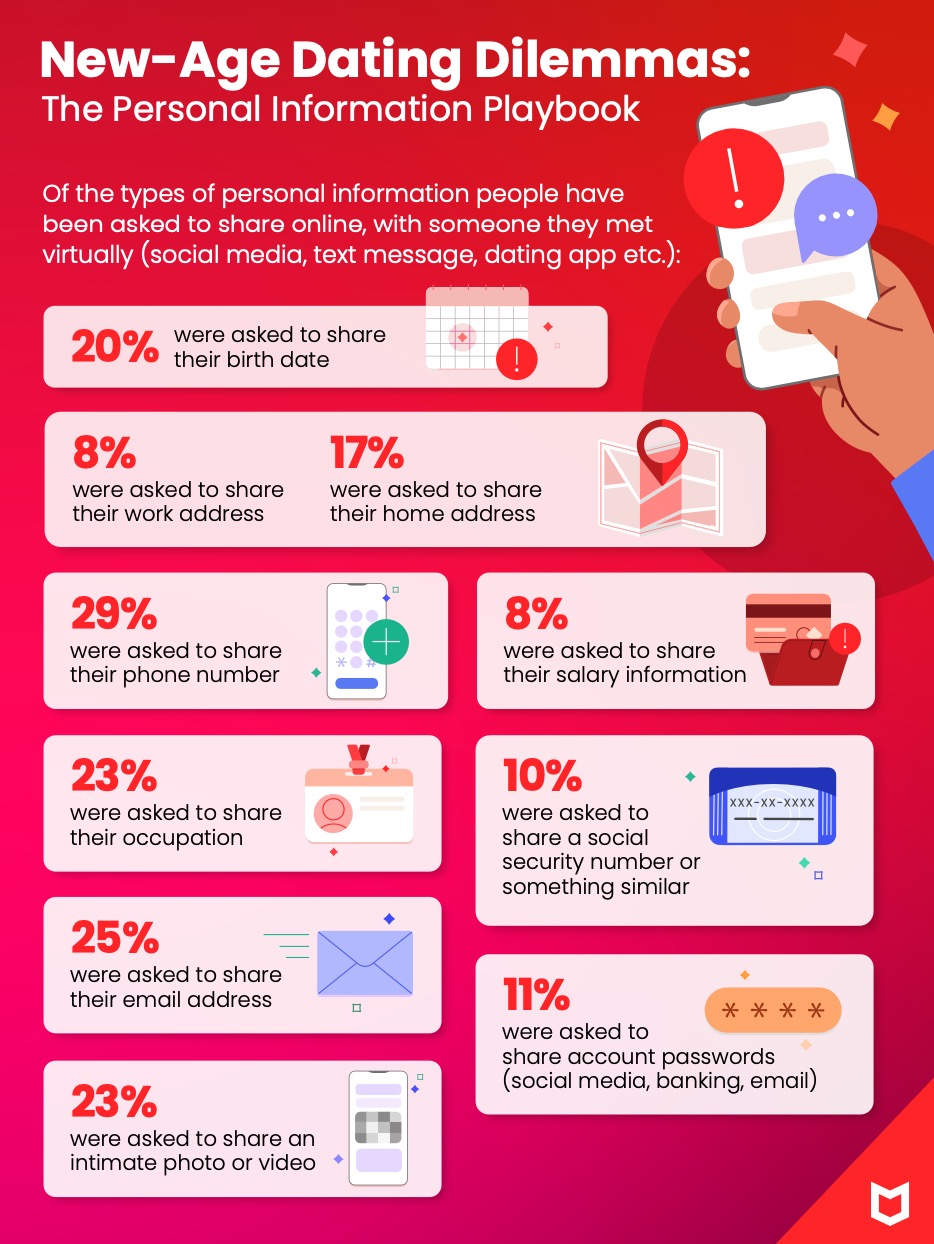- I ditched my daily driver Bose headphones for the XM6 - and I'm hesitant to go back
- This Lenovo ThinkPad is my top pick for remote work - and it's nearly 50% off now
- I invested in this 3-in-1 robot vacuum, and it's paying off for my home
- I've tested the Meta Ray-Bans for months, and these 5 features still amaze me
- My new favorite iPhone portable charger has a magnetic superpower - and it's cheap
Love Bytes – How AI is shaping Modern Love | McAfee Blog

AI has made the dating scene. In a big way. Nealy one in four Americans say they’ve spiced up their online dating photos and content with artificial intelligence (AI) tools. Yet that might do more harm than good, as 64% of people also said that they wouldn’t trust a love interest who used AI-generated photos in their profiles.
That’s only two of the findings from this year’s Modern Love research. Our second annual study surveyed 7,000 people in seven countries to discover how AI and the internet are changing love and relationships. And it should come as no surprise that AI has ushered in several hefty changes.
In all, we found that mixing love and AI has its ups and downs. For one, people cite how effective AI is. Almost 7 in 10 people said they got more interest and better responses using AI-generated content than their own. However, people also said they didn’t like receiving AI-coded sentiments. Some 57% said they’d be hurt or offended if they found out their Valentine’s message was written by AI.
The tricky part is this — people still find it tough to spot AI content. Only 24% of people said they were sure they could tell if a message or love letter was written by an AI tool like ChatGPT. Still, 42% said they saw fake profiles or photos on dating sites, apps, and social media in the past year.
Moreover, two-thirds of people said that they’re more concerned about phony AI-created content now than they were a year ago. As further findings from McAfee Labs show, those concerns have their roots in reality.
Lovestruck, or scam-struck? Online daters said it’s tough to tell what’s real and what’s fake
Without question, the rise of powerful AI tools has complicated the online dating landscape. In particular, AI has made it easier for romance scammers to trick people looking for love online. They can ramp up their scams more quickly and with more sophistication than ever before.
In fact, the McAfee Labs team has seen an increase in Valentine’s campaign themes, including malware campaigns, malicious URLs, and a variety of spam and scams. They expect these numbers will continue to rise as February 14 gets closer. Since late January, our Labs team has uncovered that:
- Malicious Valentine file-based campaigns rose by 25%.
- Malicious Valentine URLs rose by 300%.
- Valentine spam (including email scams) rose by 400%.
These findings fall right in line with what online daters told us. Nearly one-third of Americans said that an online love interest turned out to be a scammer. Another 14% said they discovered an interest was an AI-bot and not a real person.
Scammers often go outside the app
What’s at stake in these scams? Money, personal info, and sometimes both.
While many romance scammers make initial contact with their victims on dating websites and apps, they quickly move the conversation elsewhere, such as chat apps like WhatsApp and Telegram. In other cases, they move to texts. This gives scammers an advantage, as many dating platforms have fraud detection measures in place. And it’s here where romance scammers commit theft and fraud.
Large, organized crime operations run many romance scams. Moving the conversation from a dating site or app is often a sign that the victim has been “passed along” to a senior scammer who excels at extracting payments and personal info from victims. People shared the top types of info that scammers tried to tease out of them:

Online dating calls for some modern-day detective work
In a dating pool filled with an increasing number of scams and AI content, online daters find themselves doing some detective work.
Our study found that 38% of people said they used reverse image search on profile pictures of people they’ve met on social media or dating sites. Another 60% of respondents said they often use social media to dig into the background of their potential partners. As a result:
- 35% said it made their opinion about this person more positive, and 23% said it made their opinion about them more negative.
- 13% said it made them realize they were being scammed, and 7% said they realized their potential partner had scammed others before.
And rounding out those findings, 11% said they discovered something else entirely — that their potential special person was already in a relationship.
Steps for protecting yourself from online romance and AI scams
Online dating has always called for a bit of caution. Now with AI hitting the dating scene, it calls for a little skepticism, if not a little detective work. That, in combination with the right tools to protect your privacy, identity, and personal info, can mean the difference between a budding relationship or heartbreak — whether that’s financial, emotional, or both. The following steps can help:
- Scrutinize any texts, emails, or direct messages you receive from strangers. AI-written messages have a few telltale signs. For example, AI-generated messages might lack a certain substance.
- Do a reverse-image search of any profile pictures the person uses. You might find if they’re tied to another name or to details that don’t match up. If that’s what you spot, it’s likely a scam.
- Never send money or gifts to someone you haven’t met in person, even if they send you money first. Scammers often send money to soften up their victims and build trust. Likewise, don’t share personal or account info, even if the other person is forthcoming with theirs.
- Talk to someone you trust about this new love interest. It can be easy to miss things that don’t add up. So, pay attention to your friends or family when they show signs of concern, and take the relationship slowly.
- Invest in tools to help identify online scams. Online protection software like ours can help you spot fakes and scams. Features like McAfee Scam Protection use advanced AI to detect scam links in texts, email, and social media messages before you click. Our Personal Data Cleanup can keep you safer still by removing your personal info from sketchy data broker sites — places where scammers go to harvest useful info on their victims. And if the unfortunate happens, we offer $2 million in identity theft coverage and identity restoration support.
The ”AIs” have it. Online dating has changed
The past year has brought plenty of change to online dating. People now use AI to pepper up their dating profiles and pics, compose love notes, or come up with a few lines for the inside of a card. Likewise, scammers have welcomed AI just as warmly. They use it to fuel content and chats that swindle victims looking for love, backed by sophisticated and large-scale operations that run like a business.
Yet today’s online daters still have what it takes to spot a fake. They have several tools and protections available to them, many powered by AI that can help them steer clear of heartbreak, both the financial and emotional kind. That, along with a mix of healthy skepticism and detective work, they can still date online with confidence, even as AI continues to make its way onto the dating scene.
Survey Methodology
The survey was conducted online in January 2024 by Market Research Company, MSI-ACI via email inviting people 18 years and older to complete an online questionnaire. In total 7,000 adults completed the survey from 7 countries including the United States, United Kingdom, France, Germany, Australia, India, and Japan.


